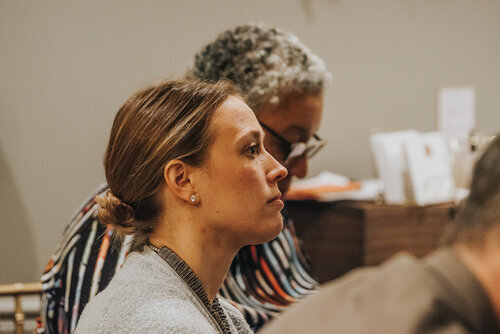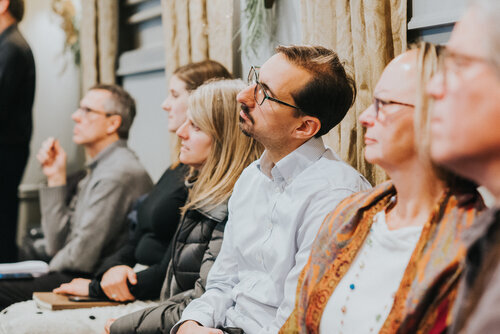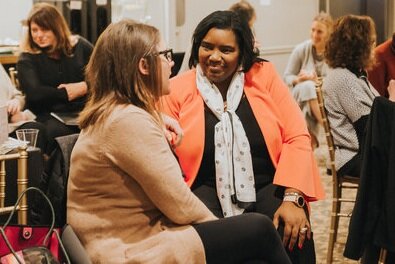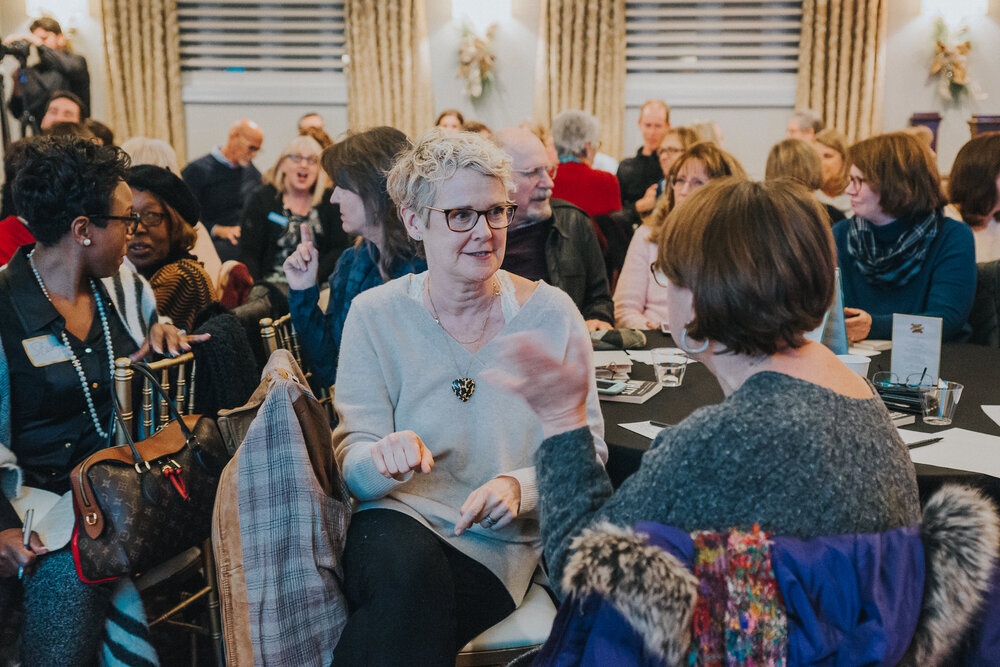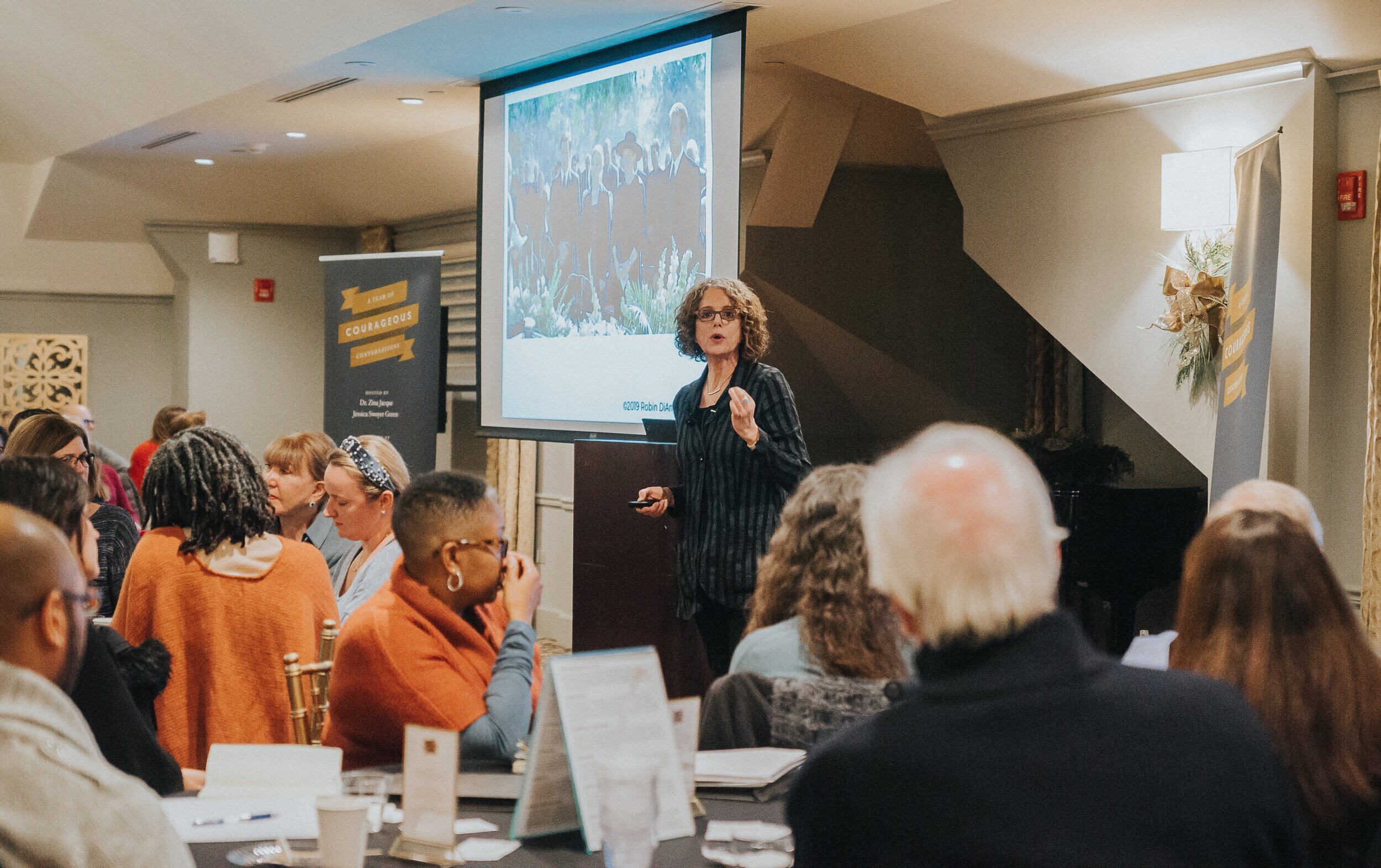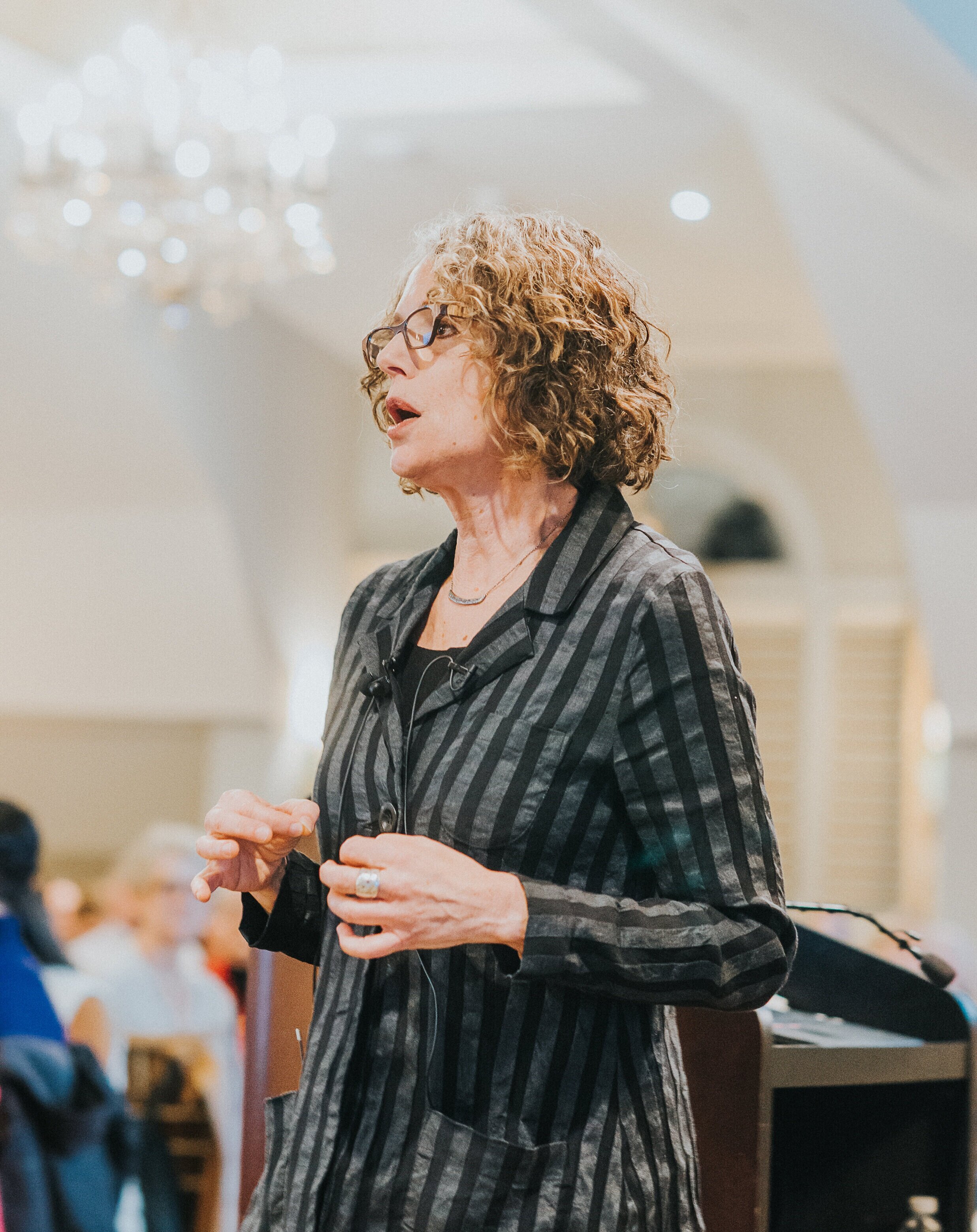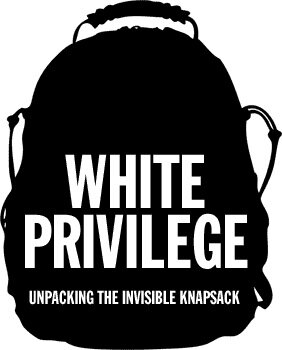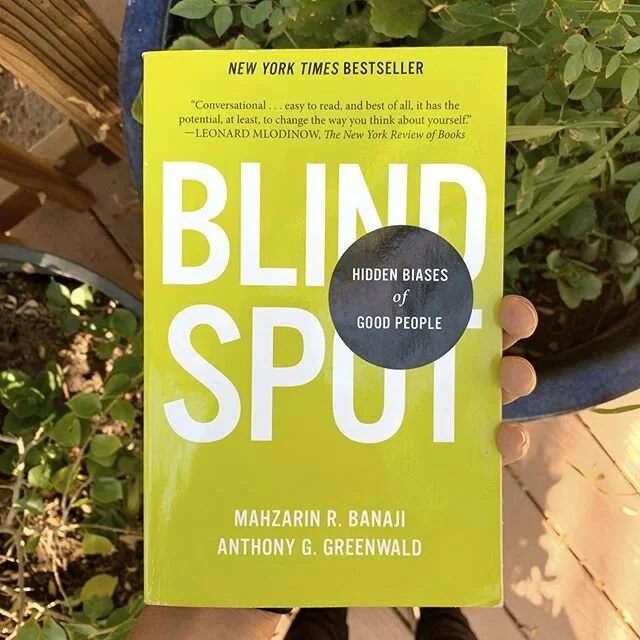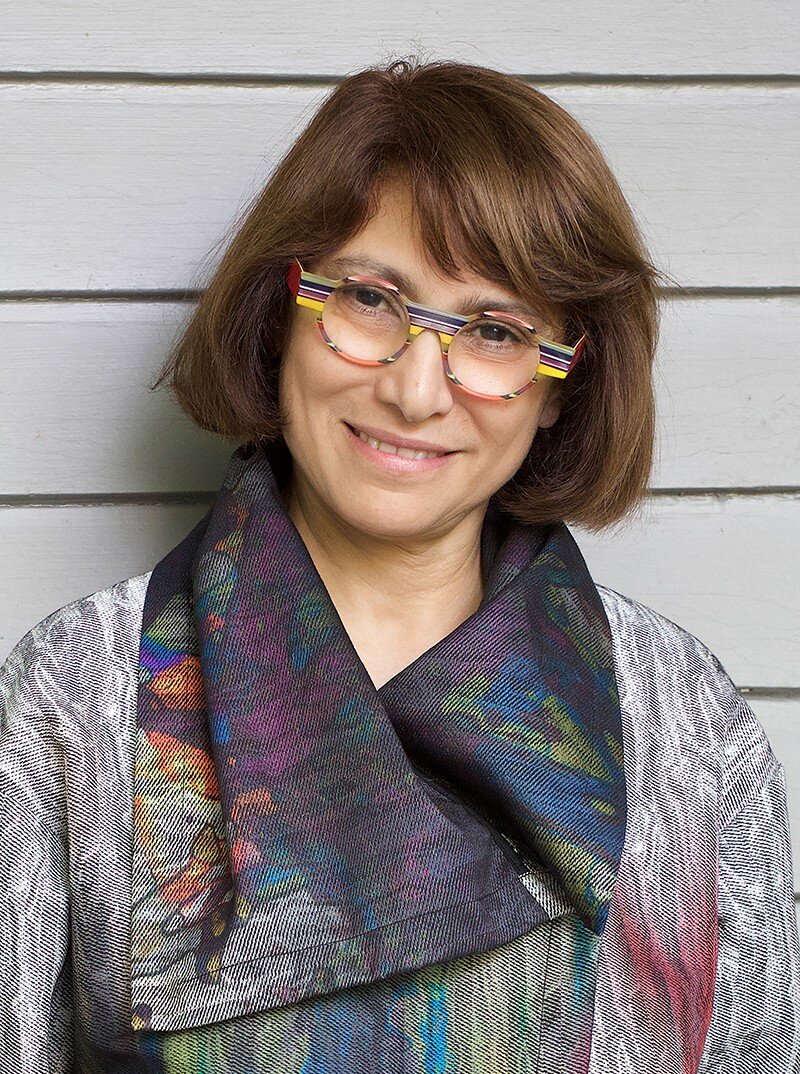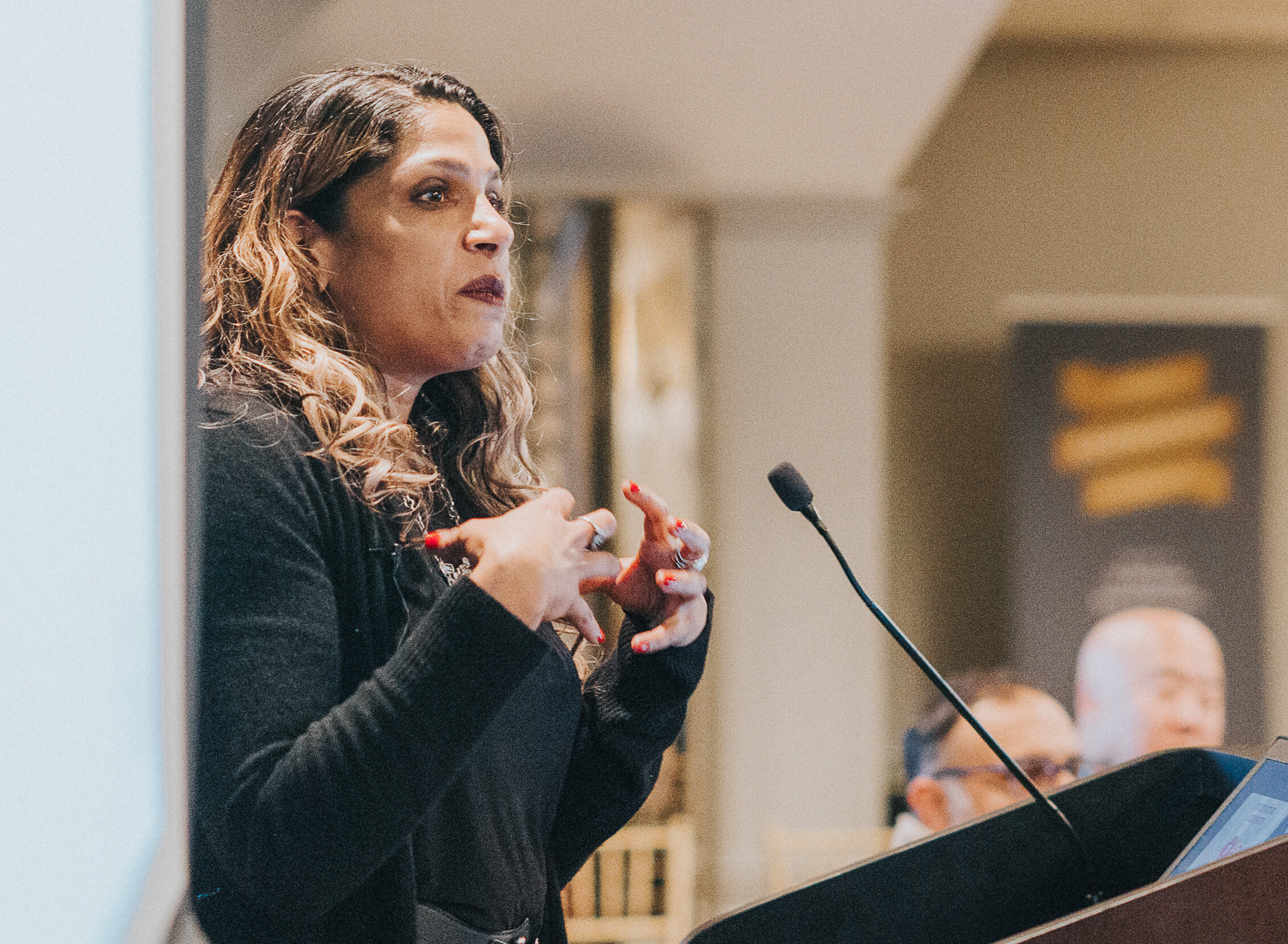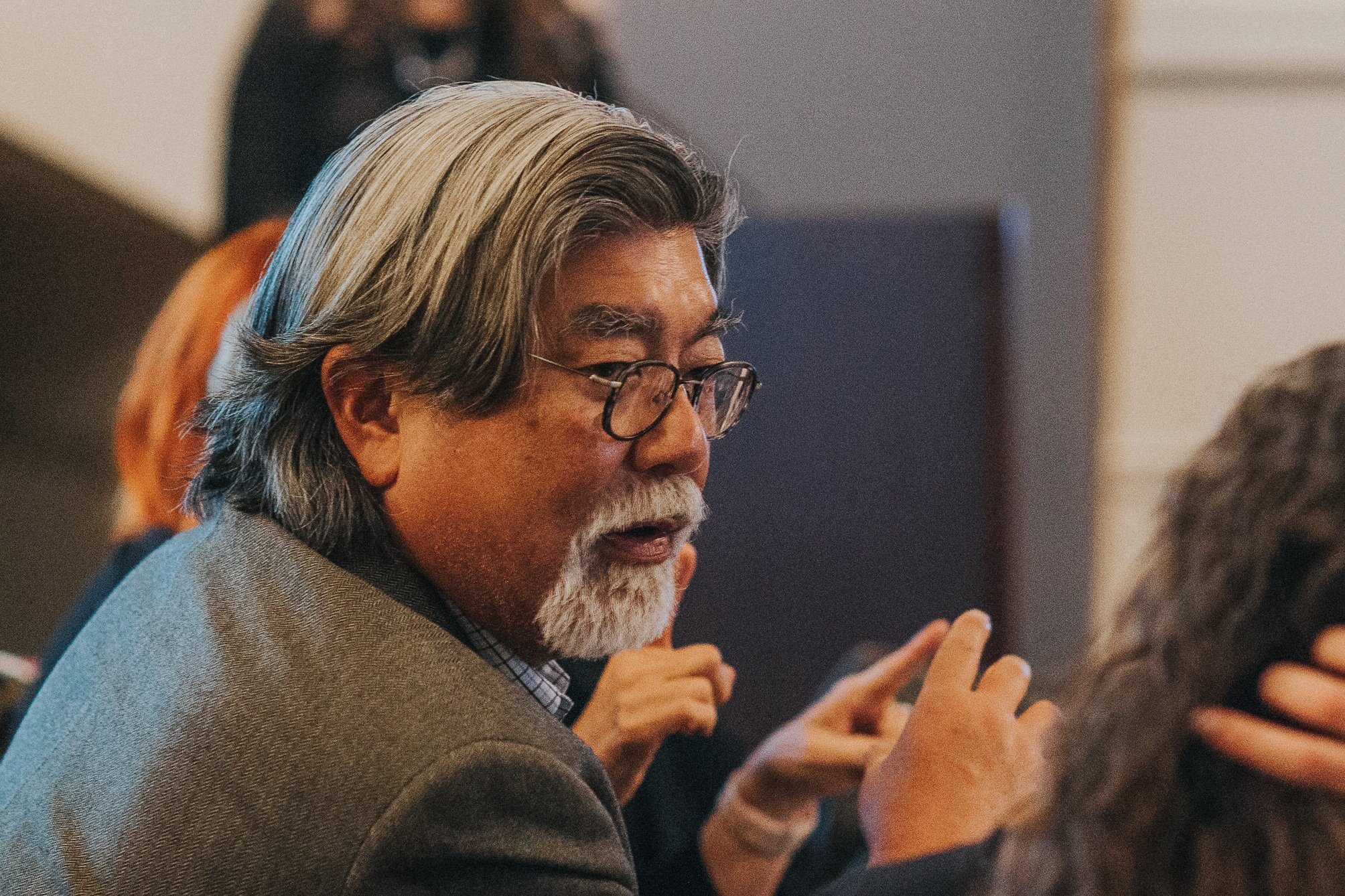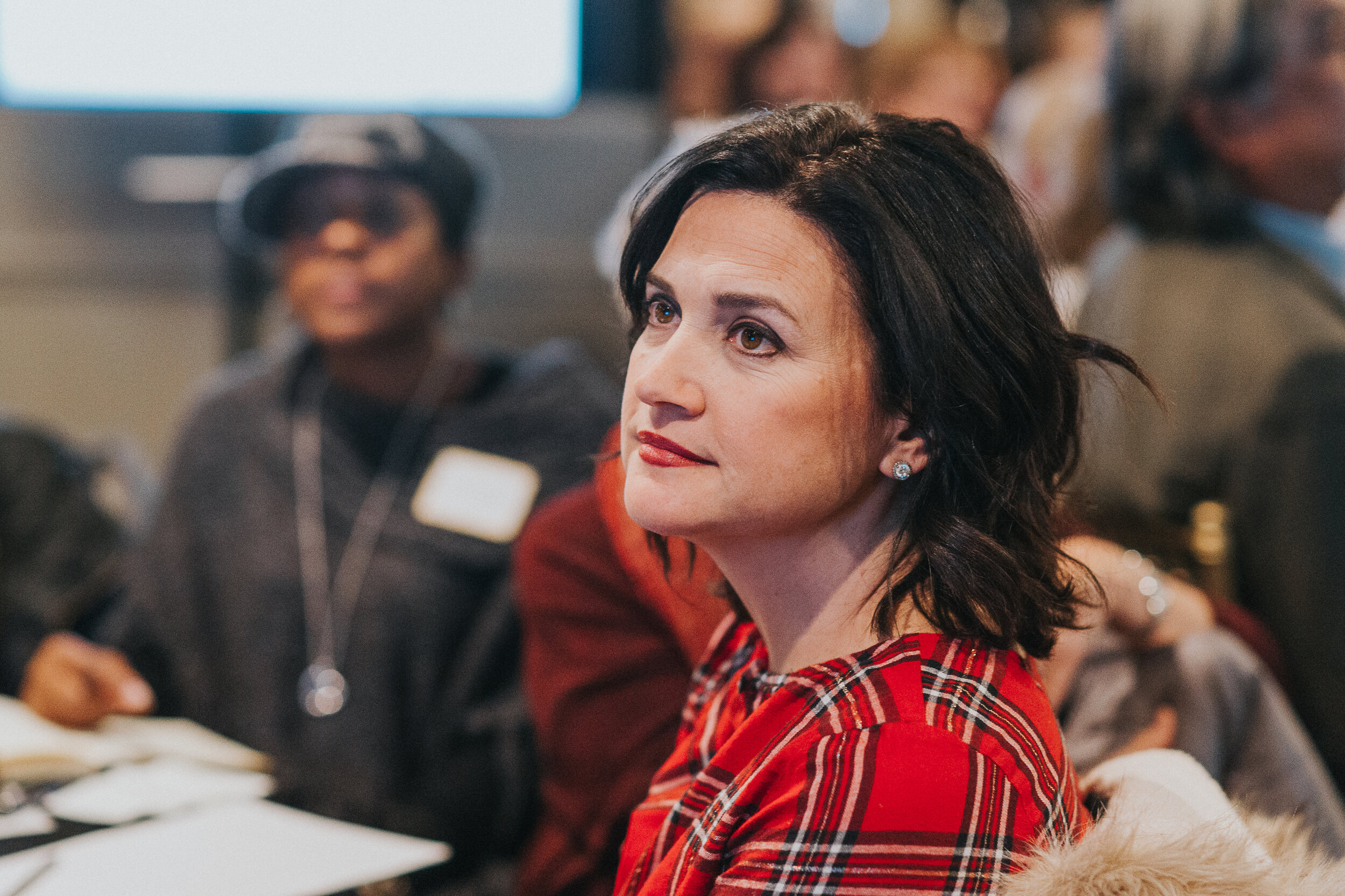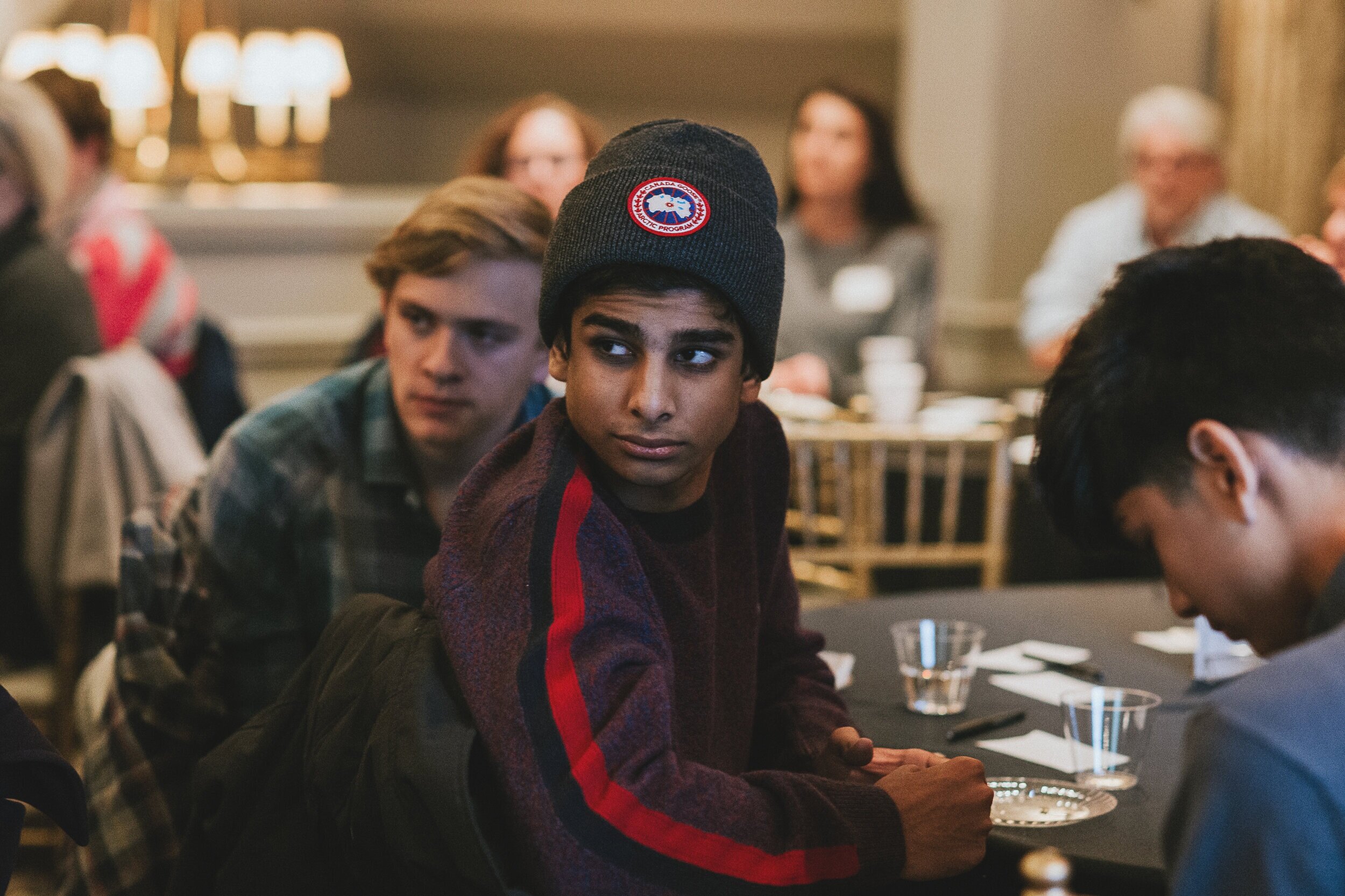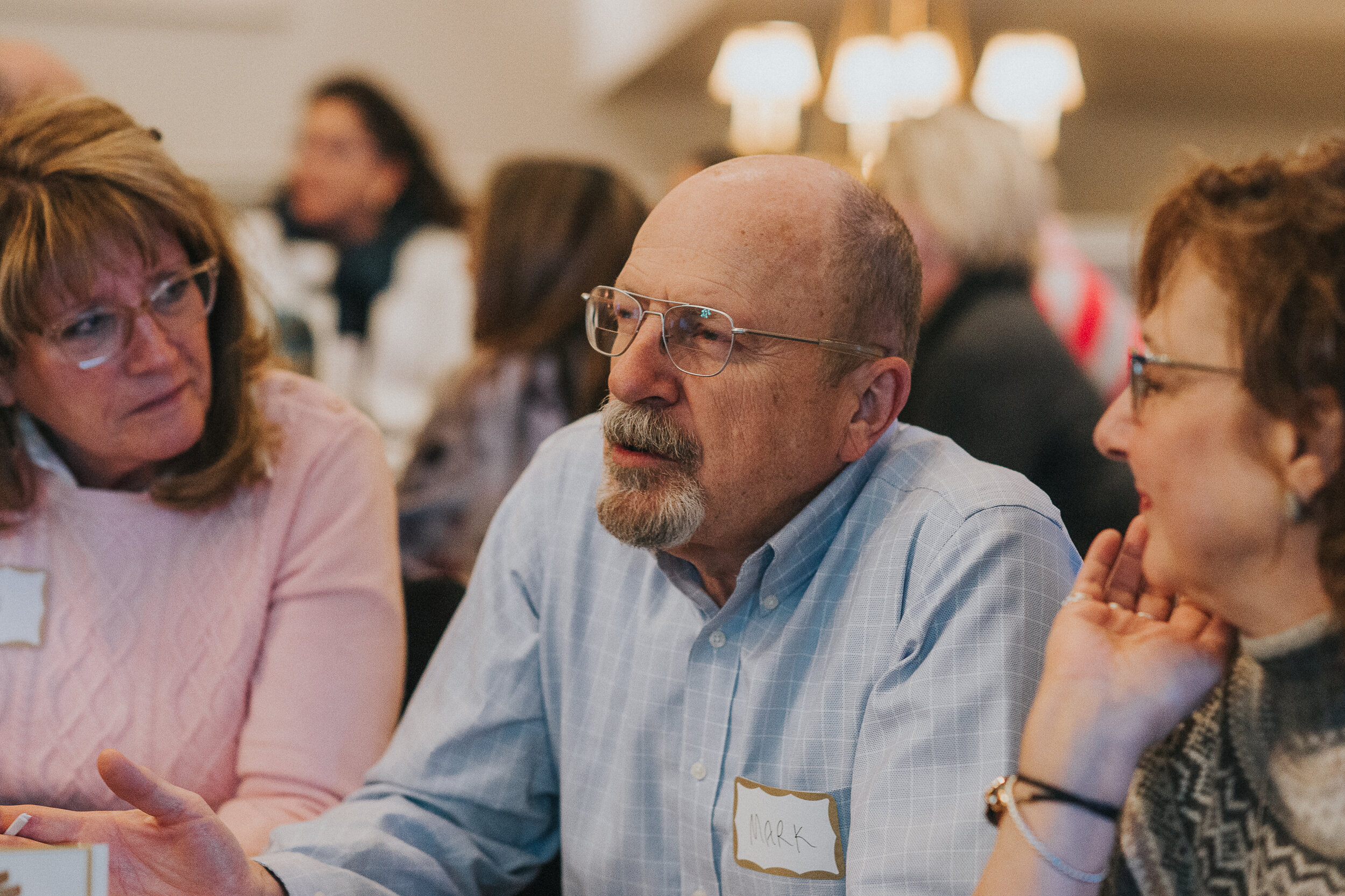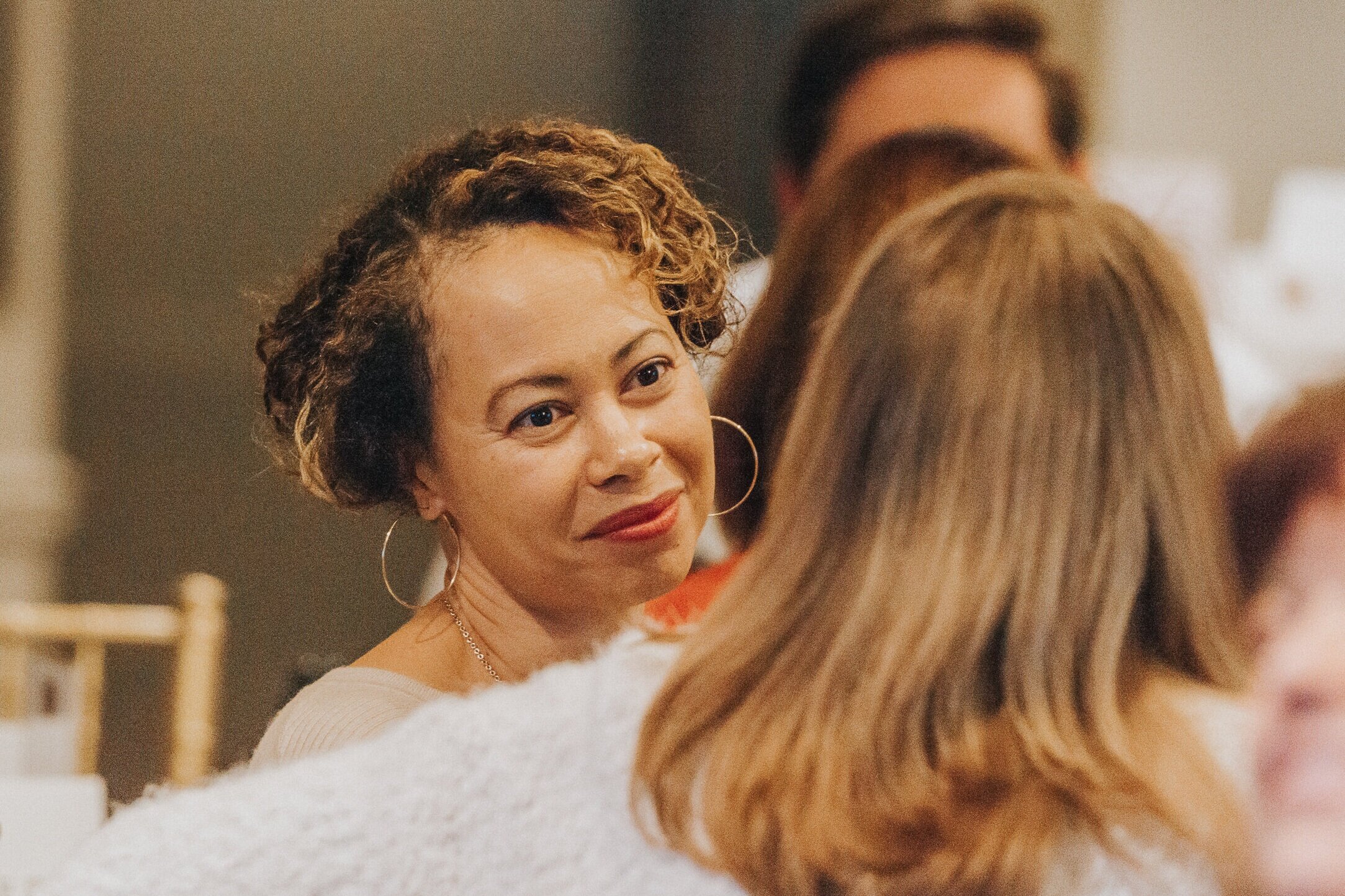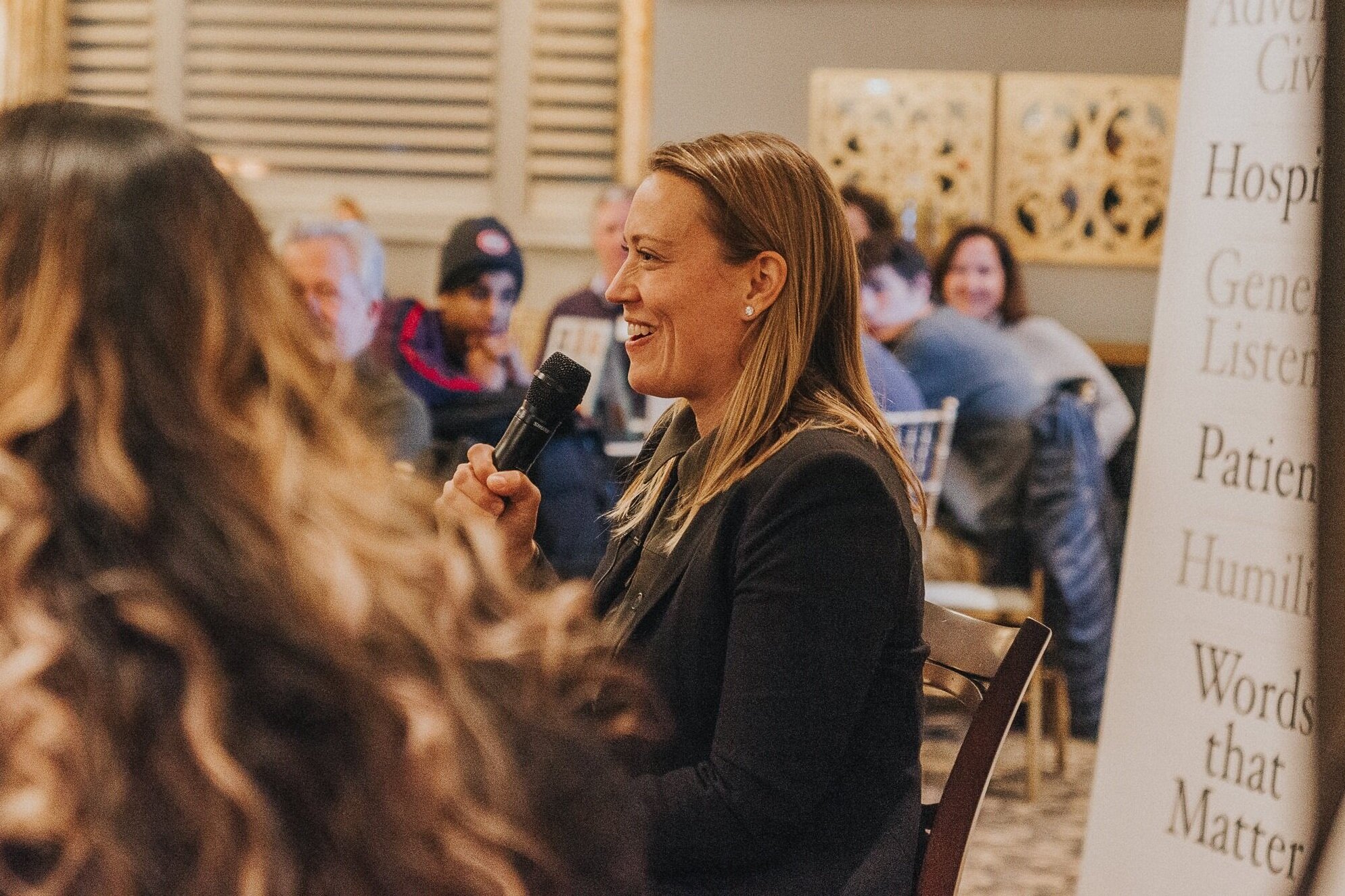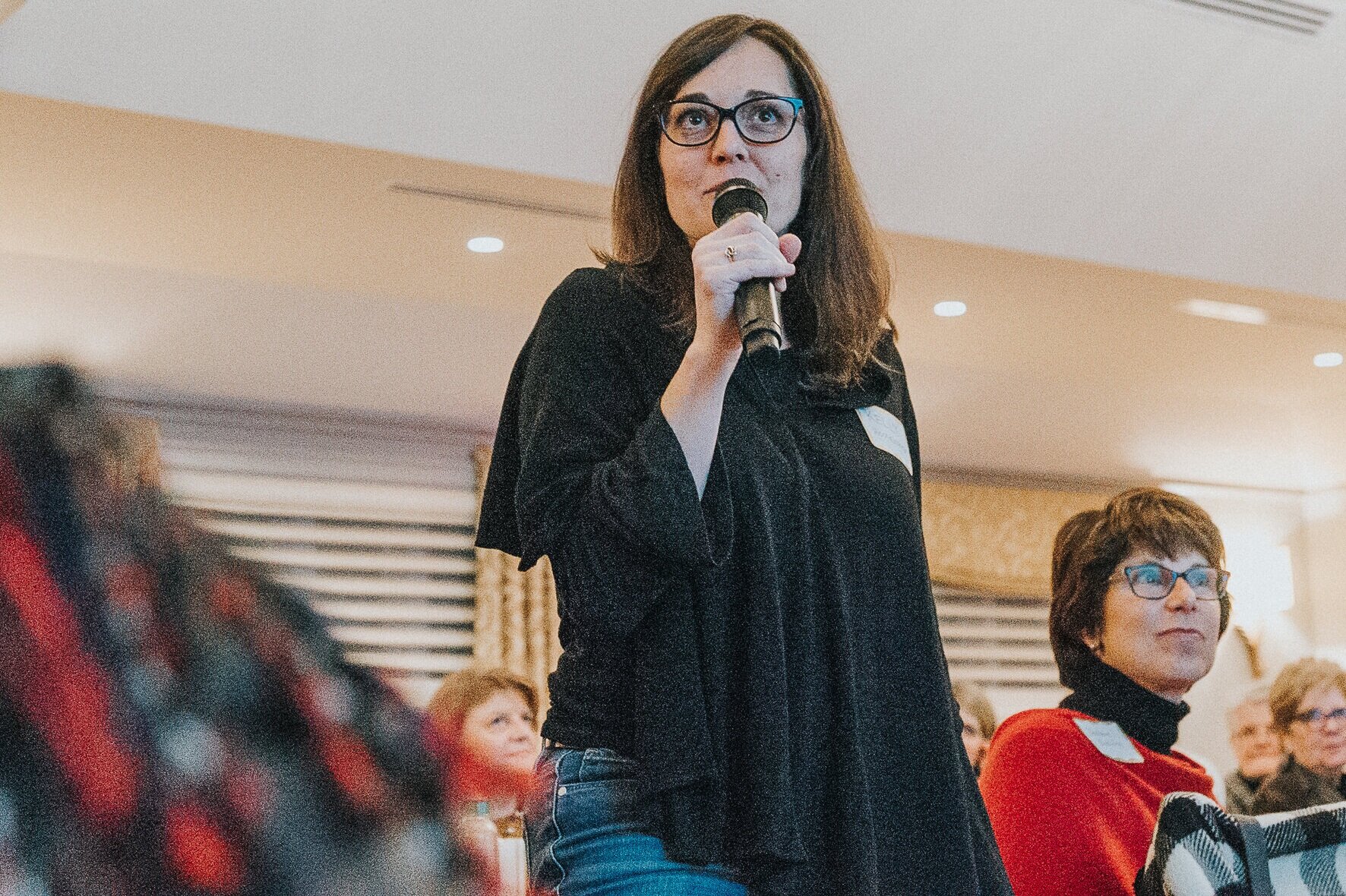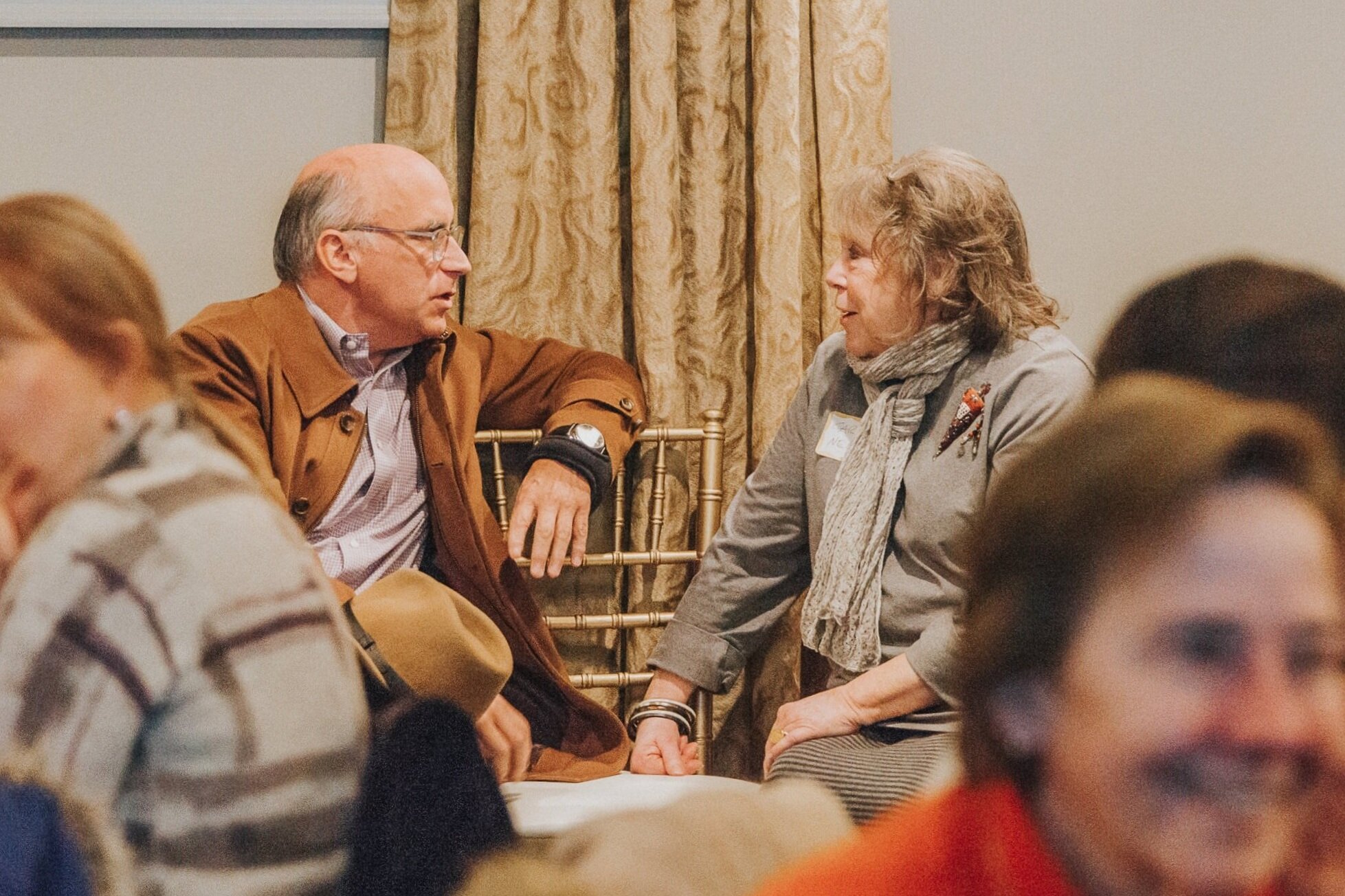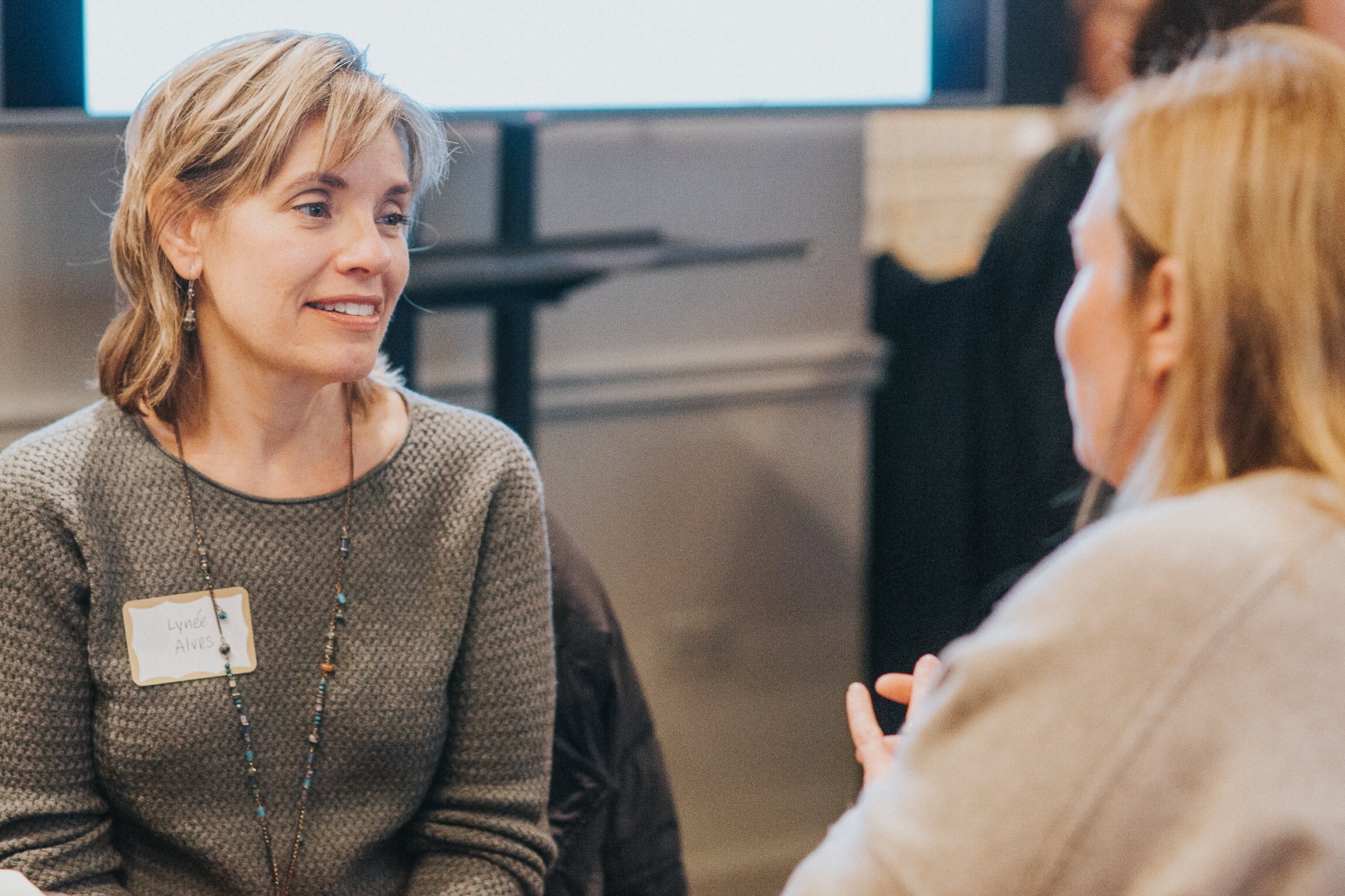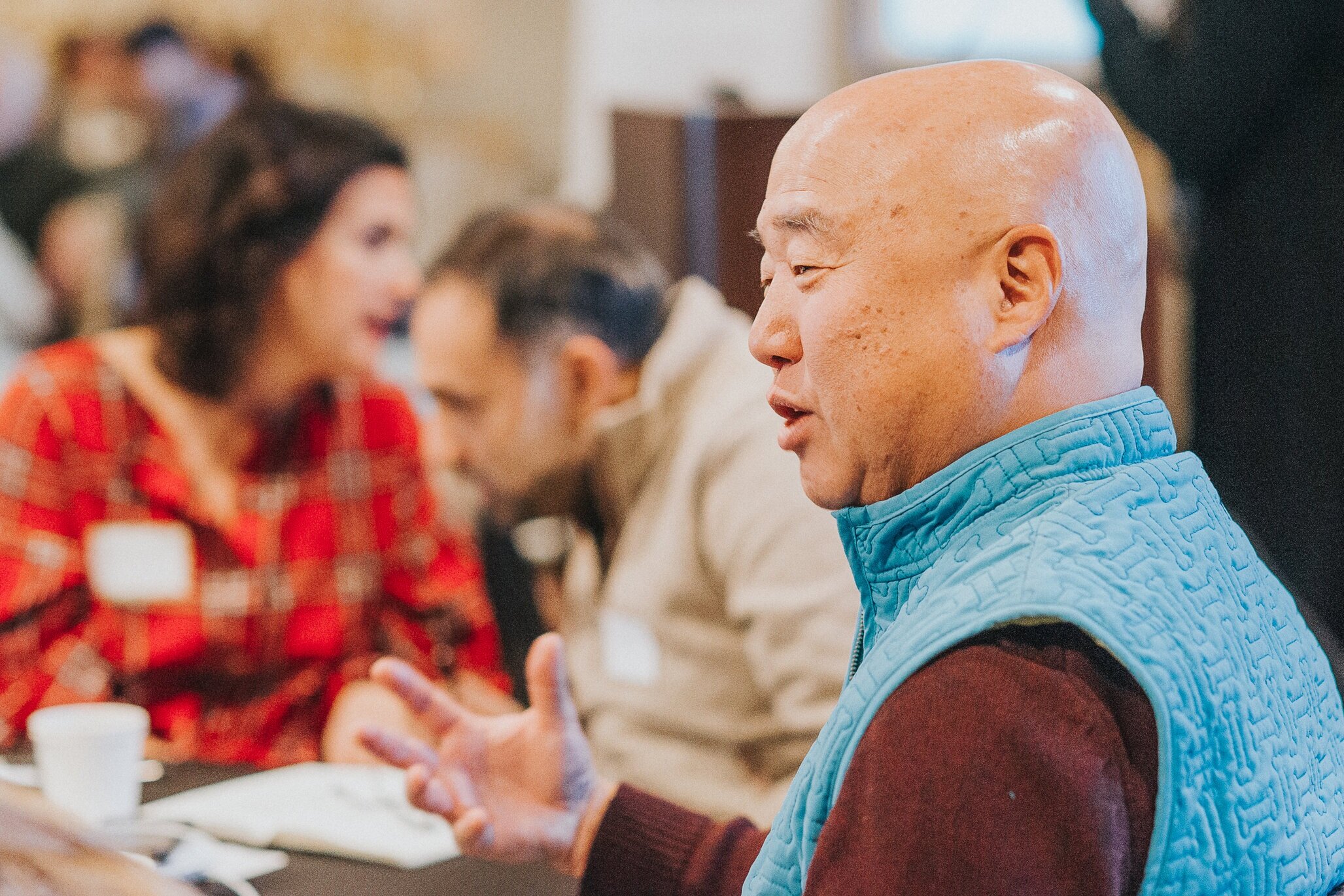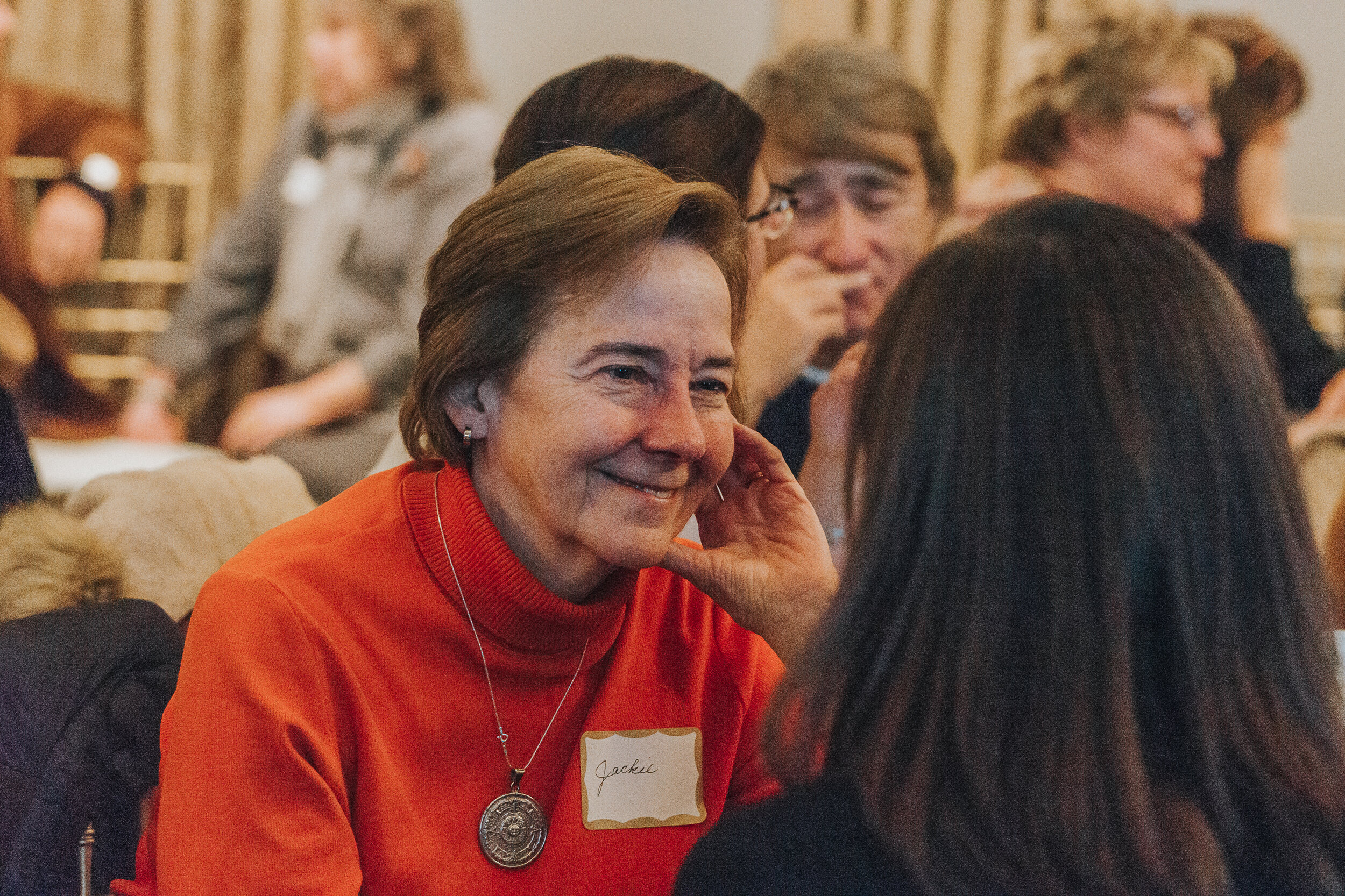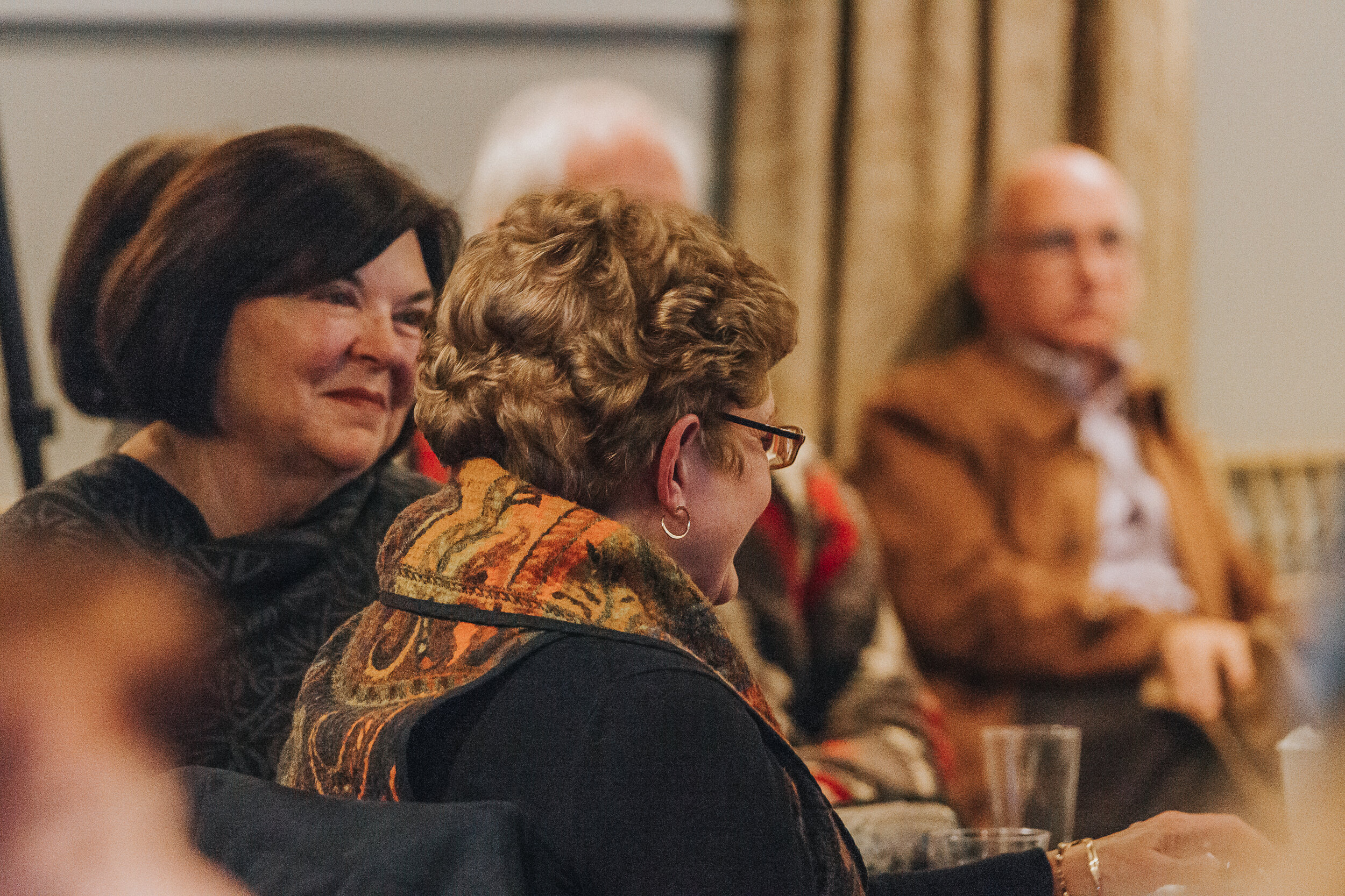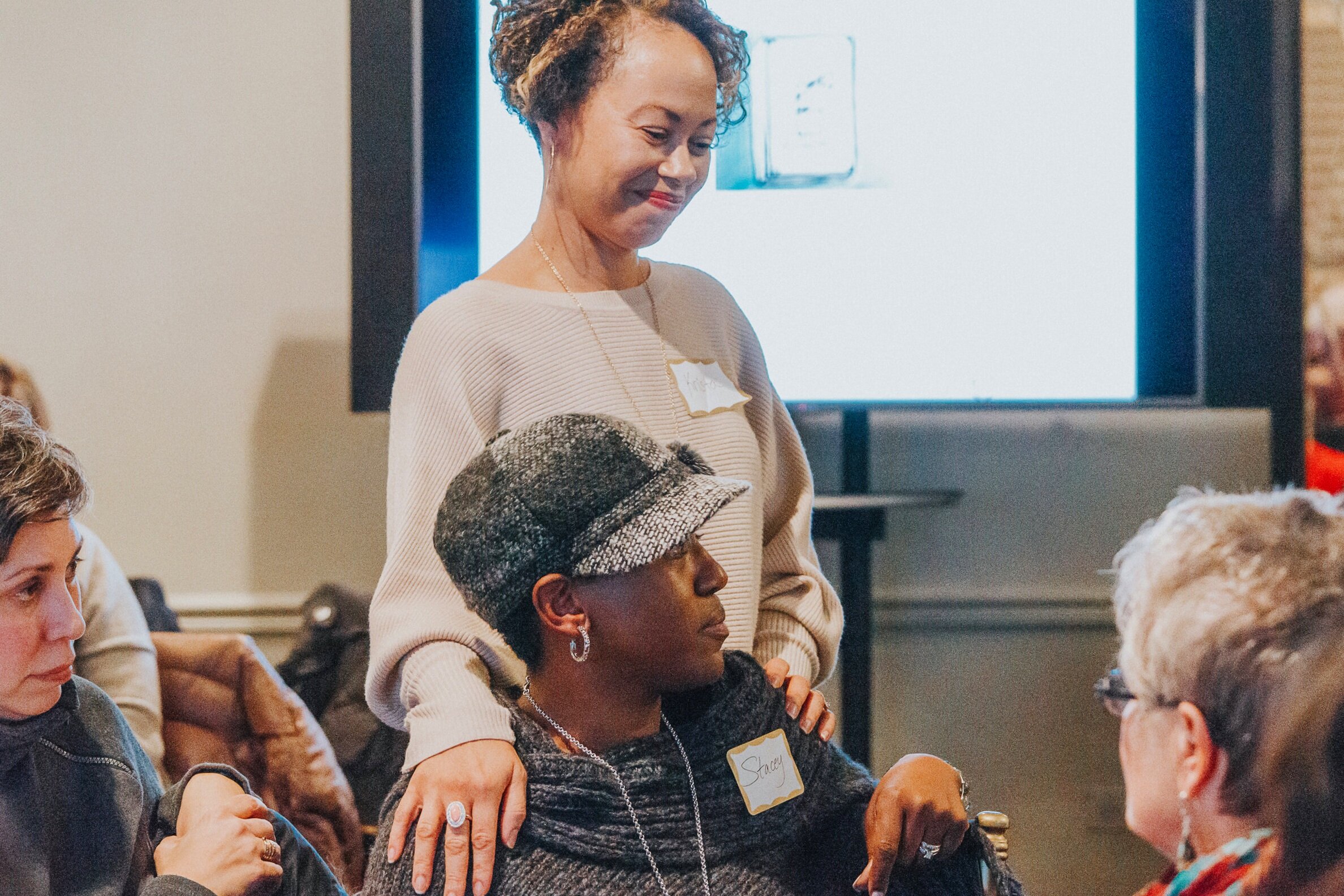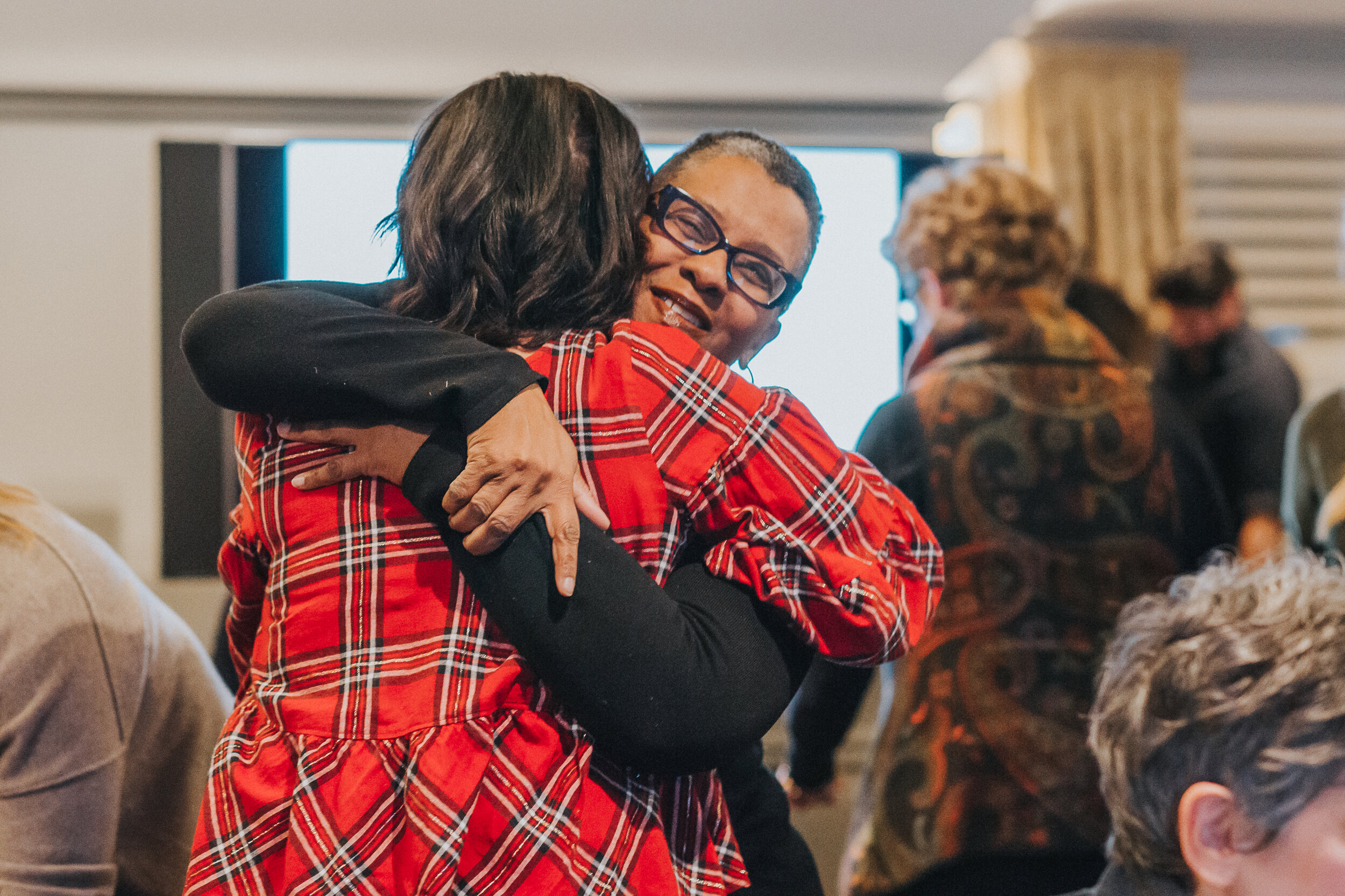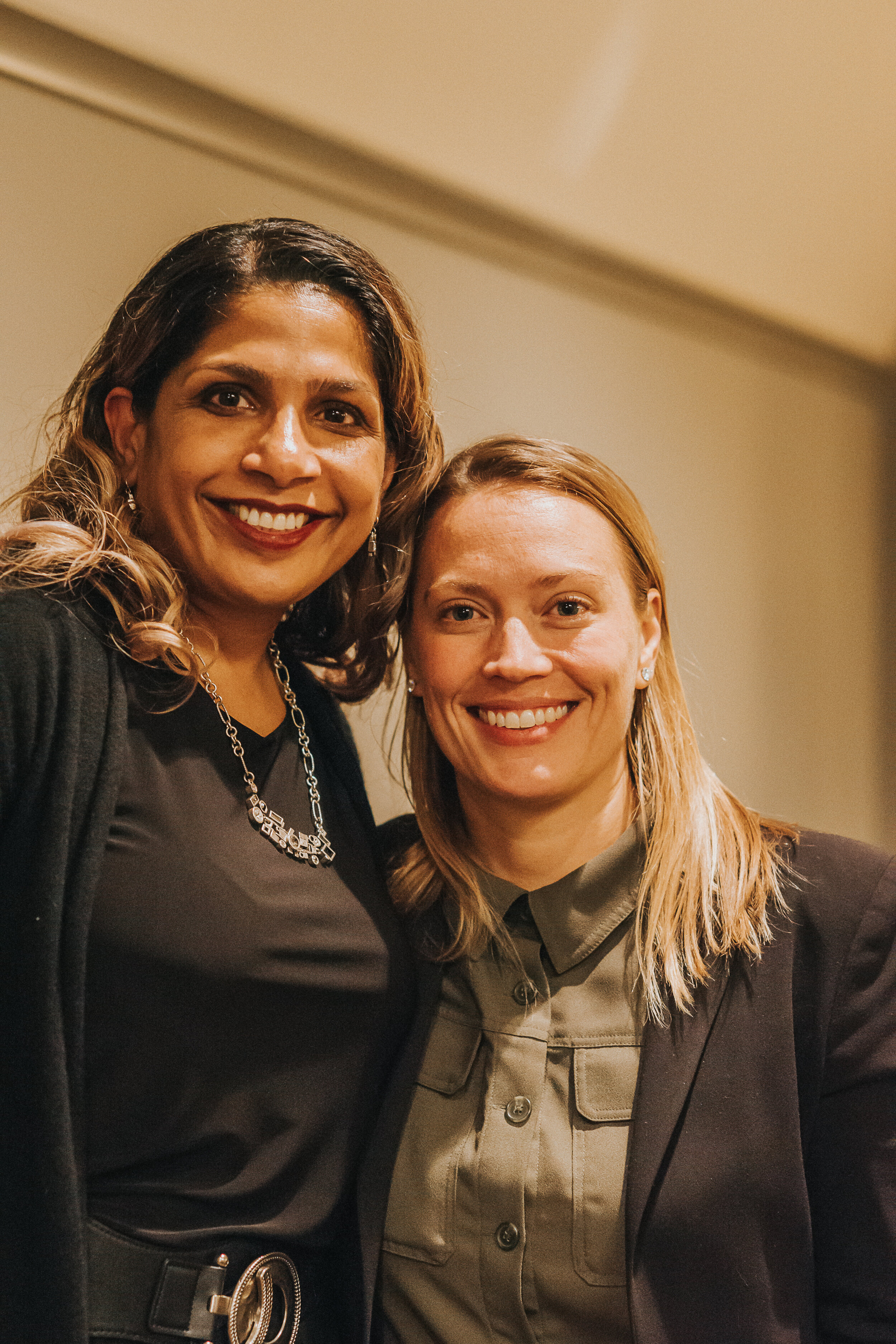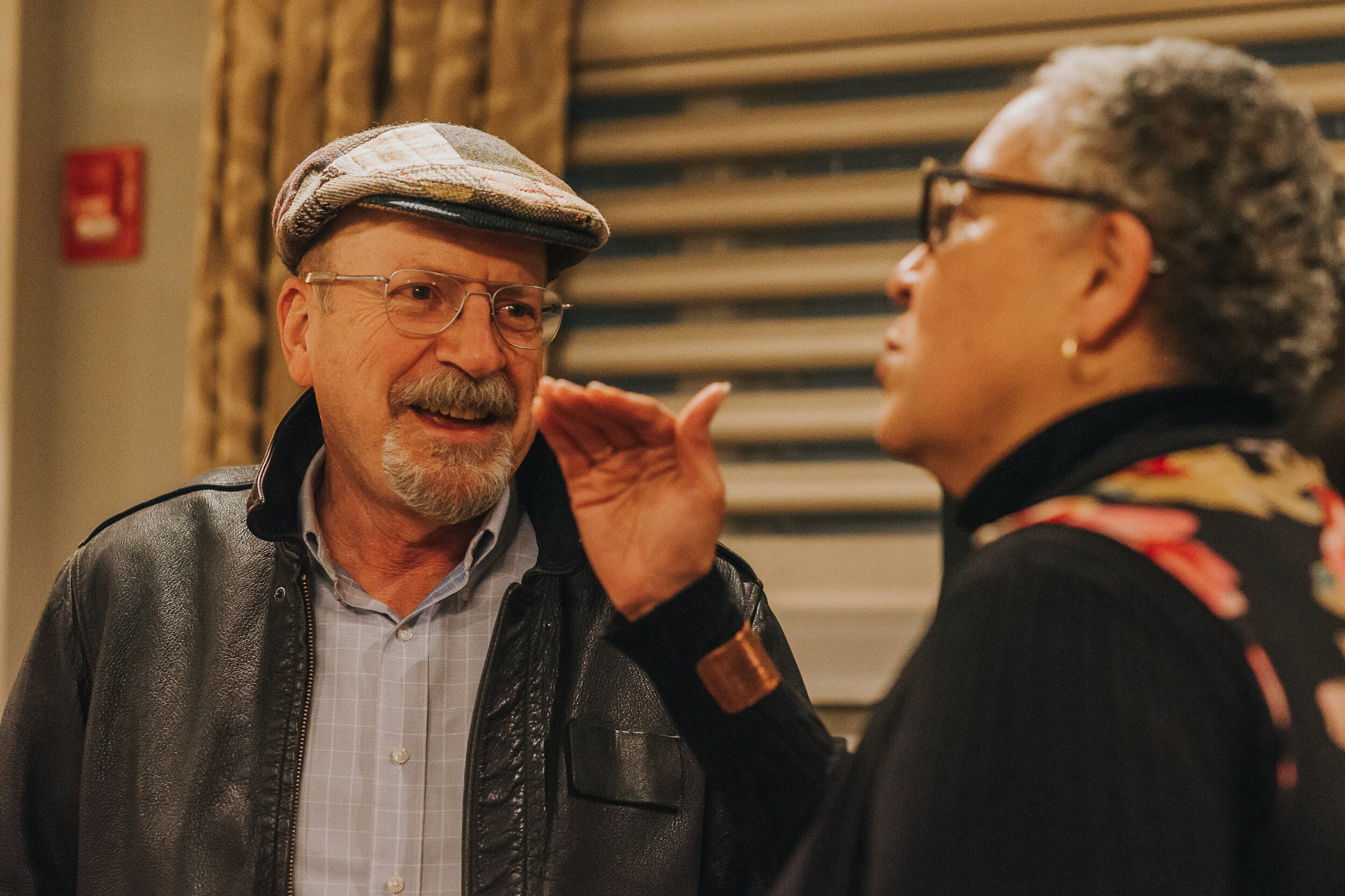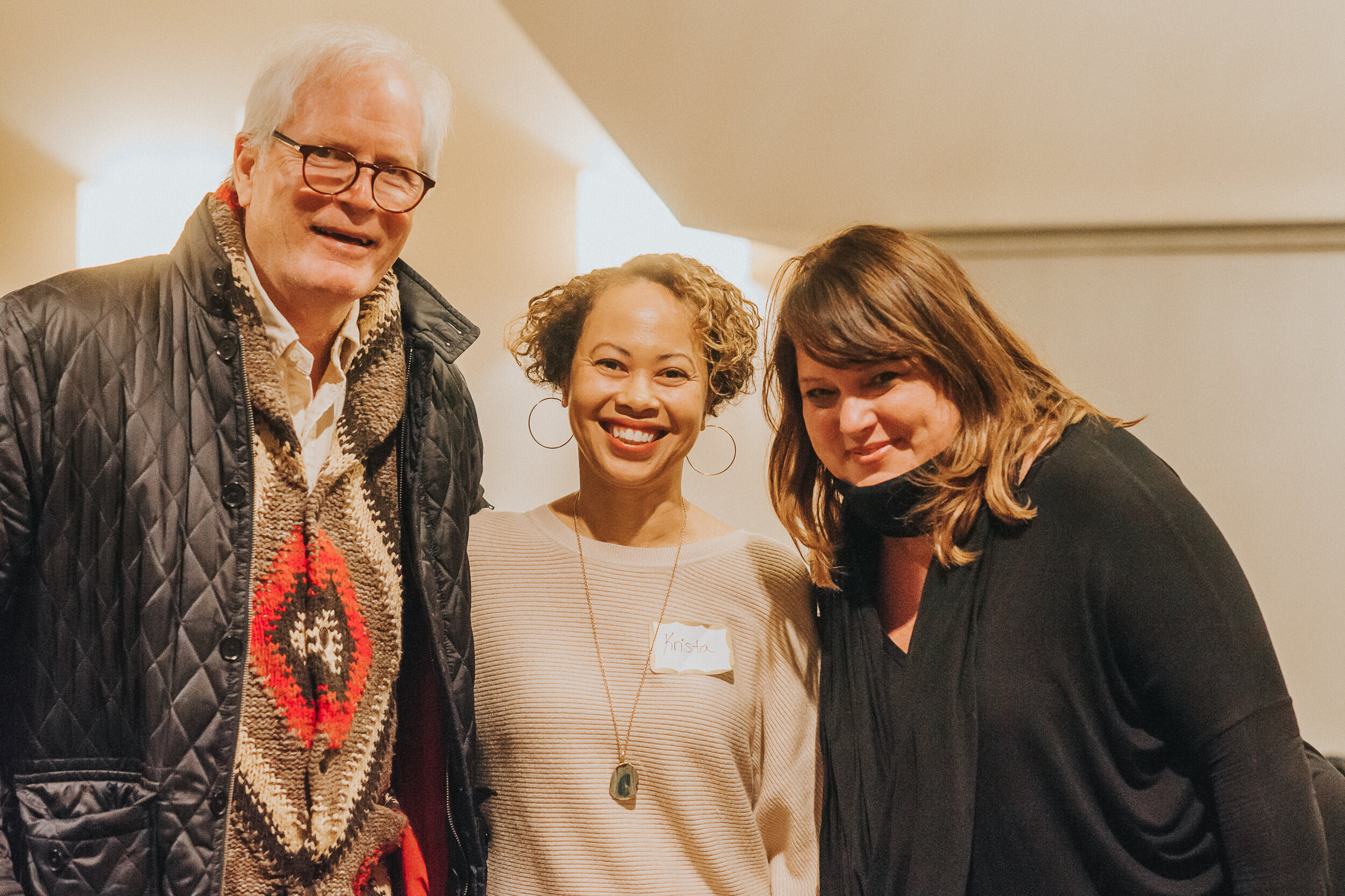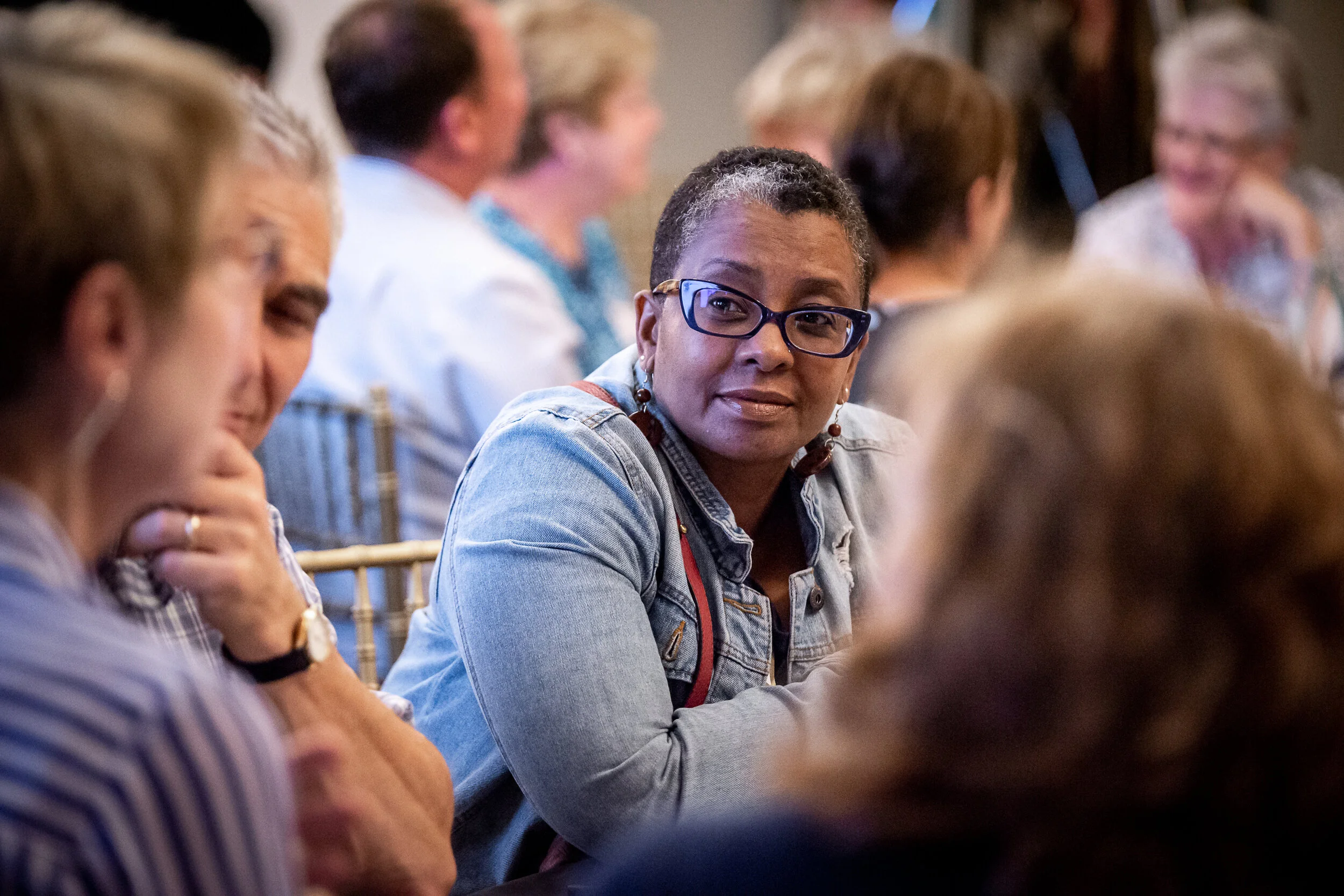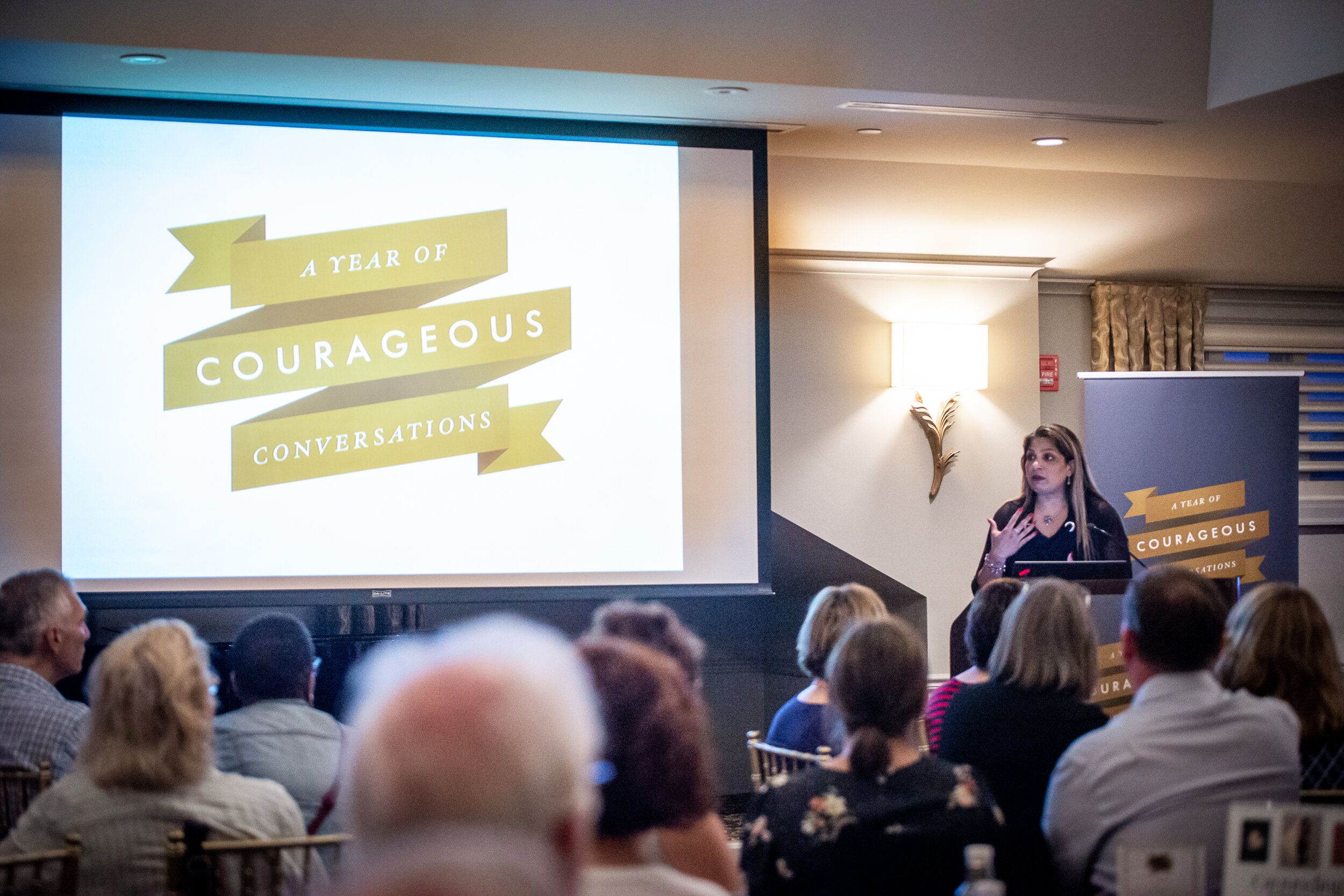“Perhaps, like a field in the springtime that is newly plowed, my brain, my opinions, my algorithms, need to be turned over, leaving me a little unsettled.”
-Carol Bier-Laning
I’m a results-oriented person. Give me a task, and my first question is what needs to be done next. My personality has made it, at times, a challenge to be a Courageous Conversations Fellow. What is the outcome? What should I be doing? How will I know if I am “getting it”? I judge that others around me seem to be having their lightbulb moments, but have I had that? Should I?
The ideas and concepts about which we have been talking and learning have been marinating in my brain over these last few months. I find myself thinking about them at interesting times. During a conversation about the program with my good friend, she states, as so many seem to believe, that she is not a brave person, she really has never done anything courageous. Then I remind her of her bravery in facing challenges when she is at work, or when a family member has been ill. She doesn’t see those actions as courageous, but I know they are and help her to see that. Is that the endpoint? Is that what I am supposed to be doing?
I have always thought of myself as a curious person. I’m the one who is bound to ask “why” in class, or “what does that mean?” But then I look at the judgements I make, the frustration I feel when I judge that someone else is not doing their job or has fallen short of my expectations. Am I really curious? Do I ever stop and wonder why that person acted in a way that grates on me?
Am I really curious about how others navigate in their world? Or is it just easier to gripe about how others fall short of my expectations? Bit by bit, I have fleeting moments of curiosity when I start to open my mouth in complaint. Is that the end product of my Fellow training?
I was at some training for work recently. The shuttle that was to take us back to our hotel was not yet running, and I needed some exercise. I decided to walk. Sure, it would have made sense to see how far away the hotel was, but I had made the ride in the shuttle for a couple days, and it didn’t seem that far. So off I went, in the cold, carrying my briefcase and made what turned out to be the 5-mile trek along a busy divided thoroughfare.
Apparently, I looked in distress, as a police officer stopped to ask me if I was OK, and if I needed a ride. I declined, but it got me thinking about implicit bias. If I was younger, or a woman of color, or not carrying a briefcase but a backpack, would he have stopped? Would he have been concerned? I passed a young man walking the other direction (the only other person I passed) who was African American. He made a point to look up and say, “Hi, how are you doing?” as we passed. It got me thinking—does he think I am worried? What implicit biases does he think I have? What biases does he have about me? And what about the police officer? Did he stop to ask if this young man needed help?
Of all the things we have discussed, I seem to land on the topic of implicit bias pretty frequently. Are all biases bad? Is it wrong, always, to make judgements about others? In reality, we all make judgments all the time—should I ask this person for directions, or better to ask that person over there? Will it be OK if I cut across this line of people waiting to get popcorn at the theater in front of this person, or better in front of this other person? Do I want to get to know this person better? Do I want to talk to this Lyft driver? Do I trust this friend of mine with some really sensitive news that shows me in a very bad, very vulnerable light? Or should I wait and tell a different friend? Or no one at all?
When our kids were smaller, I was working on a civic project and many people in our community were making very disparaging remarks about certain groups of people in the community. I remember coming home, discouraged and frustrated and ranting, actually, at my family, reminding them never, ever to judge an individual based on the commonly held beliefs about a group to which they belong.
But I also advised them to make good choices about friends, which forces one to make judgments about others. Are those things different? Are judgments always wrong? We have to make judgments all the time in our daily lives, or we would be paralyzed by treating every decision like we had no background information. We all use algorithms to function, and sometimes those algorithms are called “profiling.”
I usually justify my judgments as just that—making a good judgment. But how many times are these judgments really biases that can offend, anger or cheat another person out of an opportunity?
At this moment, I am left with lots of questions and few tasks that I feel I have completed. But is that really the task, to leave me with questions? How do I know if I am “passing” this Fellow training? I feel very uneasy with these accumulating questions, with feeling more and more unsettled. But perhaps, like a field in the springtime that is newly plowed, my brain, my opinions, my algorithms, need to be turned over, leaving me a little unsettled.
______
Carol Bier-Laning is a Fellow of A Year of Courageous Conversations to explore how to foster greater inclusion and belonging in our communities. The series is presented by Urban Consulate at Barrington’s White House in Barrington, Illinois. To read more, visit CourageousConversations.us.
(Photo Credit: Linda M. Barrett)
